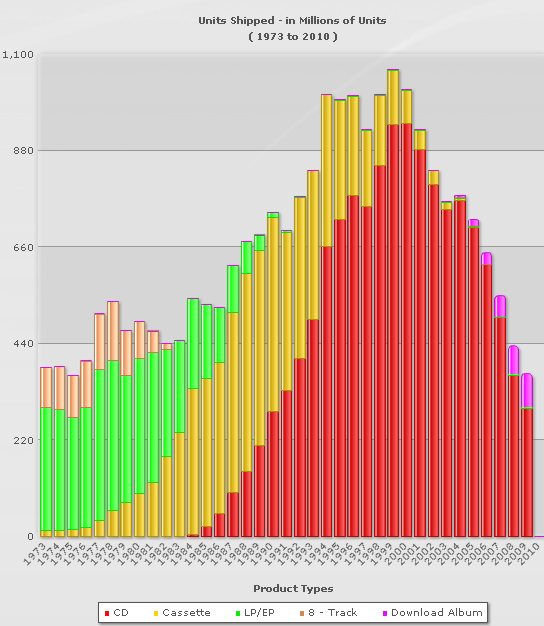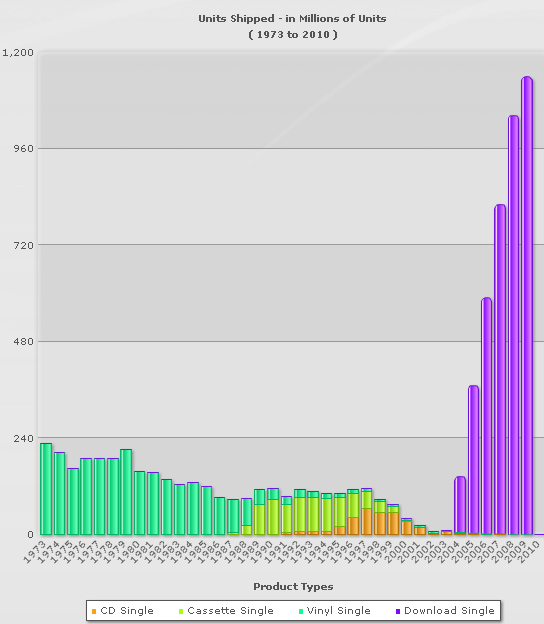Music Sales
When the music industry complains that piracy is killing the music business, they always show you charts like this:

That would certainly convince a lot of people. Of course, once one remembers that the economy took a downturn around 2001, and that the music industry slashed the number of releases it tried to sell at about the same time, then the numbers begin to make more sense.
Add to that the realization that a big part of the boom from the 80’s to the 90’s was the CD revolution, an artificial bump where many people were re-purchasing their music collections, thus adding sales that would not have otherwise occurred. This boom would not be repeated with electronic sales, because people can simply rip their CDs to make that transition, and do not have to repurchase music yet again–as much as the RIAA insists they must. Therefore, download sales only represent new purchases, while CD sales, to a great extent, reflected repurchases.
Still, does that explain the whole decline? Why are sales dropping below pre-boom levels? Why the low number of electronic sales? Er… electronic sales of albums… ahhh.
The one piece of data the RIAA tries not to show you is this:

True, these are single sales, and so represent only about 1/10th the strength of album sales. However, you get the picture: people are spending less because now they don’t have to buy 8 songs they don’t want in order to get the 2 they do want. Factor in these sales to the other chart, and you’ll find that music sales are doing better than they were in the 70’s and early 80’s, before the advent of CDs artificially inflated the numbers.
In short, the music industry is doing just fine, and is not really losing sales, at least not enough to matter.
However, the ability to claim that piracy is hurting them is very useful in getting them all kinds of attention and free stuff, from abusive laws in their favor and huge kickbacks from the sale of blank media.

Futhermore, if you look at the distribution of sales among artists you’ll see that the music is selling across many more artists than before. Look at how many units you need to sell to be #1, it’s far fewer than before. This is thanks to a more accessible market place where any artist can sell their music on iTunes without having a record label using companies like TuneCore, which I helped build.